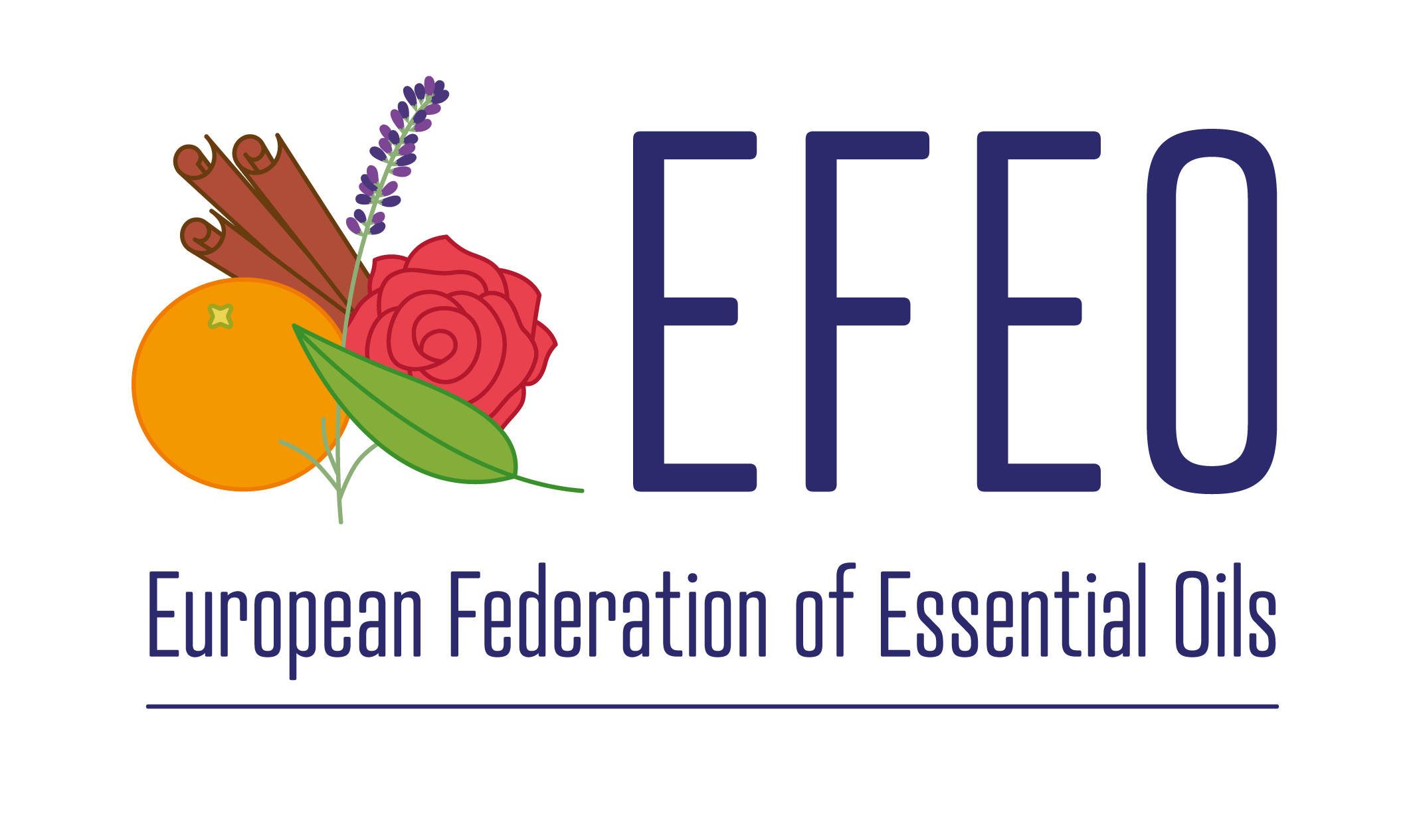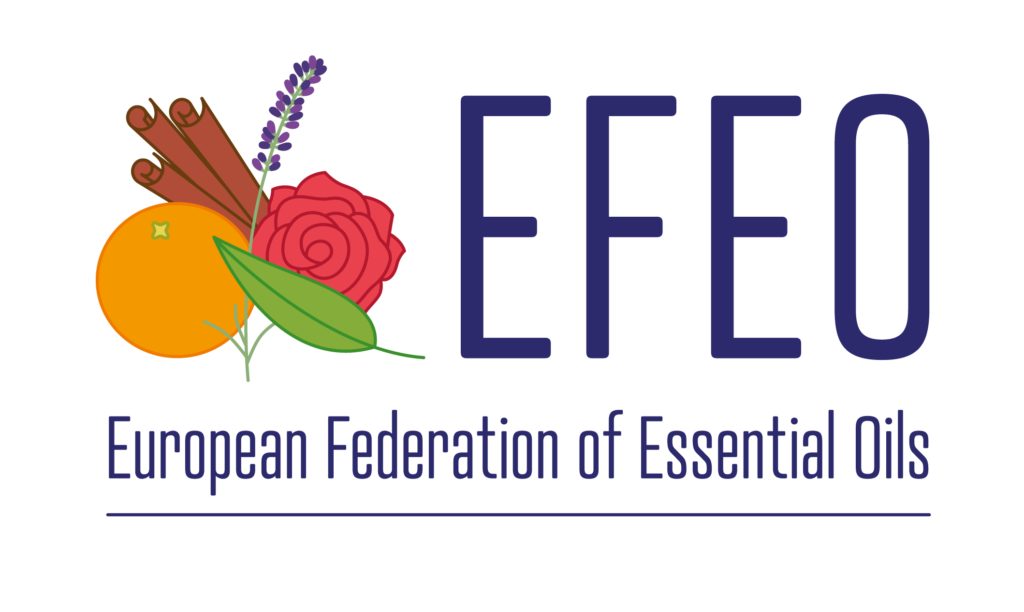Subject Matter and Scope
This Code of Conduct shall be applicable to all EFEO members manufacturing, importing, marketing, distributing or using in their production, essential oils, absolutes, concretes, or related natural aromatic extracts hereafter referred to as Natural Complex Substances (NCS), whatever use is made of them.NCS, whose composition are defined by nature, are considered as substances and not mixtures.
The Code of Conduct requires all members to adopt a transparent and ethical approach to standard operating practice within the Essential Oil industry. This includes, where necessary, a level of transparency over the origin and production of the products to ensure their appropriate and safe use. The objective is to maintain confidence of end users, official authorities and consumers when handling such products.
While it is expected that all members involved in trade, manufacture and industrial use of Natural Complex Substances shall comply with this Code of Conduct, this does not release members from their obligations under national or international regulations relevant to their field of operation.
Definitions
The following definitions (as laid down under ISO 9235:2013 (en) aromatic natural raw materials vocabulary) shall be applicable in trade between companies applying this EFEO Code of Conduct:
Natural Raw Material
Natural raw material of vegetal, animal or microbiological origin, as such, obtained by physical, enzymatic or microbiological processes, or obtained by traditional preparation processes (e.g. extraction, distillation, heating, torrefaction, fermentation).
Essential Oil
There are 5 categories of Essential Oils. An essential oil could be obtained
-
by mechanical processes from the epicarp of the fruit of a citrus, at ambient temperature,
-
by distillation of wood, barks, roots or gums, without addition of water or steam,
-
from a fruit juice during its concentration or during UHT (flash pasteurization) treatment,
-
from a natural raw material of plant origin, by steam distillation, by mechanical processes from the epicarp of citrus fruits, or by dry distillation, after separation of the aqueous phase–if any –by physical processes,
-
by steam distillation with addition of water to the still (hydrodistillation) or without addition of water to the still (directly by steam).
Extract
Product obtained by treating a natural raw material or aromatic water (hydrolate) with one or several solvents.
Concrete
Extract obtained from a fresh natural raw material by extraction with one or several solvents.
Resinoid
Extract obtained from a dry plant natural raw material by extraction with one or several solvents.
Absolute
Product obtained by extraction with ethanol from a concrete, a floral pomade, a resinoid or a supercritical fluid extraction.
Extracted Oleoresin
Extract of spice or aromatic herb.
EFEO Guidelines on Labelling
Without prejudice to customers’ labelling requirements and to relevant legal obligations where applicable, EFEO members commit themselves to meet with the following EFEO guidelines regarding product labelling:
-
Members shall label their products accurately and in a manner which clearly identifies the quality and nature of the goods, e.g. if the customer expects the product to be authentic (100% pure and natural from the species and origin referred to), then the customer should not be left in any doubt over its quality.
-
It is recognised that commercial demands from the customer may require specific name labelling. While consideration may be given to the customers’ requirements for labelling, every effort should be made to provide the true identity of the goods.
General Recommendations
In order to retain industry respect and consumer confidence within the wider market, EFEO recommends to its members that they provide all necessary transparency on the market they deal with. In order to achieve this, members should endeavour to apply the following criteria when producing or purchasing raw materials:
-
Establish reliable sources of supply irrespective of whether they are producers at origin, importers or distributors.
-
Communicate with the supply chain and relay market information to customers.
-
Record and be prepared to demonstrate traceability of goods.
-
Communicate and label goods such that any misunderstanding over quality does not occur (see above Labelling Guidelines).
-
Support the customer with information needed for a correct labelling or declaration under the relevant national laws.
-
To prevent any misunderstanding, provide relevant information about the product origin in a technical or product information sheet, if necessary to identify the specific quality of the goods (e.g. Sandalwood Oil – West Indian).
-
Ensure adequate auditing is in place within the supply chain.
EFEO recommends their members to make sure that effective Quality Management systems are in place and kept maintained.
Ensuring consumer safety is critically important. Without prejudice to existing legal requirements, EFEO members accept the importance of high quality requirements applying to the raw material, particularly with a view to potential contamination from pesticides, microbiological load, mycotoxins, heavy metals and other contaminants.
Safety Data Sheet
EFEO members shall provide and maintain updated Safety Data Sheets in accordance with the current requirements of their national laws and CLP / GHS.
Use of Essential Oils/Natural Complex Substances (NCS)
EFEO members will take into consideration relevant information on the correct classification and labelling of Essential Oils/NCS as e.g. provided by the IFRA/IOFI Code of Practice, the IFRA/IOFI Labelling Manual or additional specific labelling information or advice issued by EFEO.
Members will also take into consideration information/recommendations from the EFEO Technical Committee, which will collect and process data relevant for the safe use of Essential Oils/NCS.
EFEO does not endorse the promotion of Essential Oils/NCS for their medical application and will not promote or defend these products claiming to have such properties to any local, national or international authorities unless it is supported by a scientific dossier. Members giving advice on application or dosage relating to medicinal effects do so without the support of EFEO and are advised to consider the relevant national laws of the market in which they are trading.
Members will act in accordance with their relevant national laws applicable to the business operation concerned, particularly the relevant legislation on
-
cosmetics
-
detergents
-
foodstuff including flavourings
-
pharmaceutical products
-
animal feed
-
use in tobacco products
-
biocides
-
plant protection products
-
consumer articles
-
evaluation, authorisation and restriction of chemicals (REACH)
-
dangerous substance classification, labelling, and packaging
-
dangerous goods transportation
applying to the product at the stage of their specific trade or for the specific use intended by the members.
Labour conditions, Corporate integrity, Environmental conduct
EFEO members agree to comply with the standards set by the International Labour Organisation (ILO) and to apply working conditions and occupational safety measures stipulated by the applicable national legislation.
EFEO members should keep their business conduct free of dishonest methods and strictly abstain from any agreements and arrangements restraining free competition. They are aware that antitrust rules generally prohibit any arrangements between market operators which might restrict competition and lead to the abuse of dominance.
EFEO members shall comply with the local, national and international laws in full force in their field of operation.
EFEO encourages their members to apply responsible operating and production methods with a view to the protection of the environment. Members are expected to consider their responsibility over the use and handling of resources such as water and energy and to proper waste management in line with applicable laws.
In terms of Corporate Social Responsibility (CSR) EFEO recommends to consider approaches based on each members individual company policy.
EFEO members should be aware of the public and legislative focus on the due diligence in the supply chain particularly in the countries of the EU and comply with any future Regulations in this area.
Obligations under this Code of Conduct
EFEO members commit themselves to support the overall targets and objectives laid down in the EFEO Statutes and to actively contribute to EFEO activities.
Members are expected to make use of the information sources offered by EFEO In this respect, reference is made to the EFEO website under http://www.efeo.eu, containing EFEO Newsletters, information documents and links to important legislation (member section) and specific advice concerning REACH.
EFEO members commit themselves to follow recommendations issued by EFEO and, in case of doubt, to seek for advice by contacting the Secretariat.
EFEO Members are expected to contribute to the promotion of a positive image of the Federation and of the products falling under the scope of this Code of Conduct.
****
NOTE: EFEO may not be held liable for the personal conduct of its members, both related and unrelated to the present Code of Conduct, and the consequences of such personal conduct.
Version May 2023 superseding version 2017


